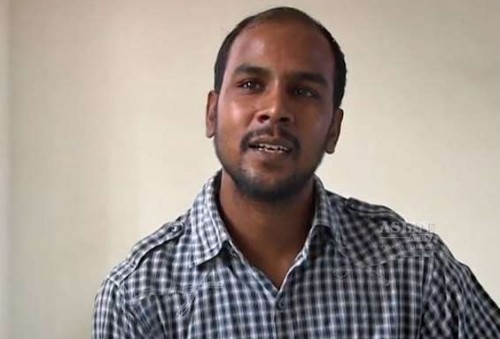
YouTube began blocking access to the controversial BBC documentary on the December 16, 2012 gang rape, citing court orders, while the government served legal notice to the top news channel after it ignored a court’s restraining order and aired the documentary carrying an interview with one of the rape convicts.
The documentary “India’s Daughter”, by British filmmaker Leslee Udwin, carries an interview with Mukesh Singh, one of the six men who brutally raped a 23-year-old woman on December 16, 2012. The documentary has kicked up a storm in India, with some women’s groups demanding a ban.
The BBC aired the documentary on Wednesday night, advancing the date from its scheduled March 8 broadcast. Support for the documentary has built up among people after they saw the documentary.
Several women’s rights activists on Thursday criticised the ban, saying the “knee-jerk” reaction constitutes an attack on freedom of expression.
A home ministry official said legal notice was served to the BBC.
“The notice says that they (BBC) had violated the contract on various fronts,” a home ministry official told IANS.
“They were supposed to take final approval from the Tihar jail authorities on the interview of the convicts but they did not do so, and according to the contract signed with the BBC, they were barred to use the documentary for commercial purpose, which they have violated too,” he said.
Earlier in the day, Home Minister Rajnath Singh said the government was “examining all aspects” related to the documentary and would take action, if required.
Before airing the film in Britain and some other countries, the BBC had assured the government that it would not be aired in India. They then went ahead and showed it, and the film was subsequently uploaded on YouTube.
“The BBC had planned to air the film on March 8, but they showed it on March 4, the home ministry said, wondering “what was the hurry?”
The information and broadcasting ministry has directed Indian news channels not to telecast the documentary.
On Thursday evening, the documentary was unavailable on several YouTube channels, with the message “This content is not available on this country domain due to a court order”.
The parents of the rape victim said they were against airing of the documentary.
“I am surprised that BBC uploaded its documentary on YouTube in spite of the court’s restraining order. The BBC has hurt the pride of India. The act of BBC clearly shows that they don’t have fear of Indian law and our country,” the victim’s father told IANS.
Women activists on Thursday strongly opposed the blanket ban.
“I have seen the documentary. It is powerful and moving. It does not sensationalise anything,” CPI-M politburo member and women’s rights activist Brinda Karat told IANS.
The All India Democratic Women’s Association (AIDWA) in a statement said it opposes the blanket ban on the documentary.
Activist Kamala Bhasin said: “We are never for bans. That doesn’t help anything.”
Writer Chetan Bhagat tweeted: “India’s Daughter is a must watch. Anyone who watches will understand devastation caused by regressive attitudes. Face it. Fix it.”
Members of the film fraternity reacted strongly against the orders to restrain broadcast of the documentary, terming it a sign of “ostrich mentality”.
Filmmaker Kunal Kohli said “it’s important to see the rapist hang rather than watch a documentary” and Hansal Mehta said it was difficult for him to comprehend the government’s order and questioned why the government was restricting cinema from reflecting the truth of society.
Hours after the BBC telecast “India’s Daughter”, the hash tag #IndiasDaughter became the top global trend on social networking site Twitter on Thursday.
Two other hash tags #NirbhayaInsulted and #DontRapeAgain were also trending on second and fourth positions, respectively.